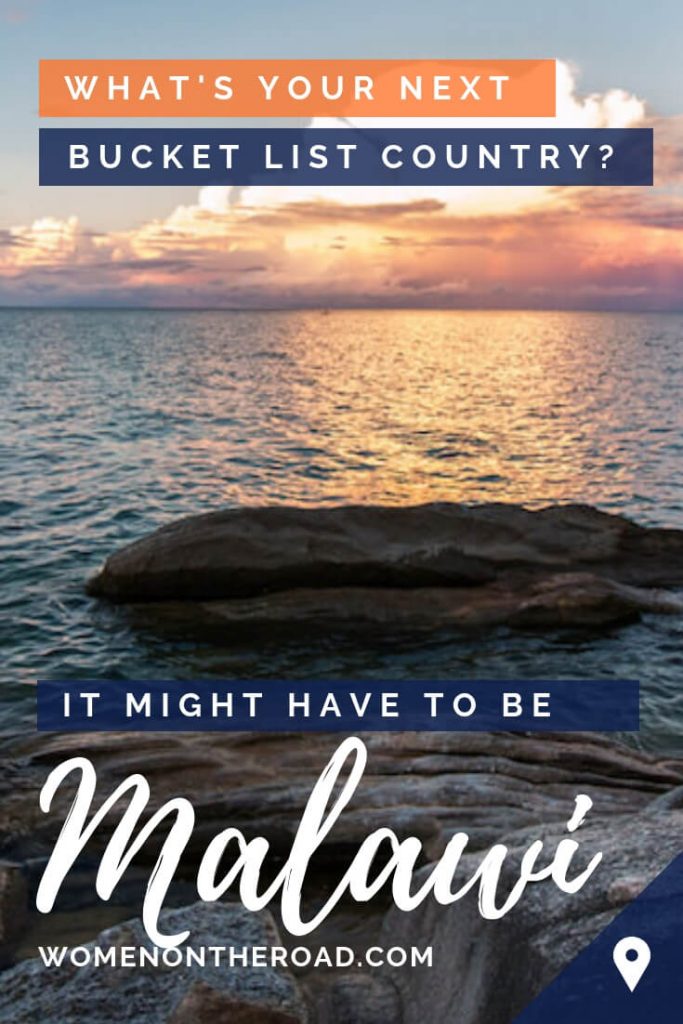Africa is huge, and approaching it is a bit like dropping into a French patisserie. If it’s your first time, where do you start?
Malawi is located in southern Africa, a region filled with adventure and discovery, on a continent that demands respect and admiration. But, like anywhere, some corners are more appealing than others, and Malawi is one of those corners.
You’ll like Malawi, a joyful simple place, deeply African yet distant from the buzz of the continent’s high-energy cities. I’m betting you won’t be hard to convince this country belongs on your must-see list. After all, Lonely Planet did name it one of the top 10 countries in the world to visit in 2022!
I’ll let these intriguingly interesting facts about Malawi speak for themselves.
MALAWI IS ONE OF THE SAFEST PLACES TO VISIT IN AFRICA
Is Malawi safe? Well, Africa is a huge continent and parts of it have a (justifiable) reputation for violence and crime – there are pockets of war, areas held by terrorists, and mega-cities in which being a foreign solo female traveler will be unsettling at the very least. But Malawi is small, rural and quite safe. According to AnswersAfrica, it’s the 6th safest country in Africa.
I remember my first visit more than 20 years ago – it felt anything but safe. Instability and poverty had made this a sensitive destination but today, things are different. I might not walk around Lilongwe, the capital, alone at night but feel unsafe at any point? No.
THERE’S A REASON IT’S CALLED THE WARM HEART OF AFRICA
Malawi calls itself the “Warm Heart of Africa”, based on a friendliness and openness that makes it a pleasure to explore. Wherever you go in this country, you’ll be greeted with a “Welcome” or a friendly question.
I was unfortunately sick my first few days, with an ear infection that made me worry I might not be able to leave. So the hunt was on for a pair of “Earplanes“, plugs that make it easier to regulate the pressure in your ears.
Internet was sometimes ‘not there’ so my partner Anne, back in France, scoured the web until she found Mitch Pharmacy, a stone’s throw from my hotel. They messaged one another, and next thing you know a pair of these was ordered for me and Mercy, the economist who runs the pharmacy, even offered to drop them off.
Everywhere it was the same: How can I help you? With smiles from morning to night. It’s easy to get addicted.

THE MARKETS ARE ACTUALLY FUN TO VISIT
Markets in Africa, especially those selling crafts to tourists, are often an assault on the senses, with artisans and shopkeepers vying for your business, sometimes trying to physically drag you to their stalls. Yet in Lilongwe’s central craft market, even though the tourist season was still months away, it was the opposite. Yes, people were trying to sell – of course they were, it’s their livelihood. But it was all done so gently and such good humor it actually made me want to stay – and yes, I did buy a few things.
THIS IS THE AFRICA WITHOUT THE TOURIST CROWDS
Few tourists mean a visit here will be an authentic experience. While this may not be great news for Malawians, it’s a blessing for visitors: no jostling for wildlife viewing, no competing for hotels and restaurants. For now, at least, most foreigners you meet are likely to be aid workers or business people.
Take yourself for a ride through the countryside. Small-town life in Malawi is dictated by the weather and the cycle of the sun, but it is a country facing major challenges: the road infrastructure needs renewal and erosion is frittering the roadsides away; this is the rainy season but a note in my room warns that due to drought, a perennial problem in these parts, there can be no guarantee of water (although there’s a chance it might come on in the evening); there are constant power failures (my flashlight is getting a workout) but they don’t last long; and Internet is so unreliable that any business that accepts credit cards displays a disclaimer warning customers to bring cash, just in case.
But it’s very much a ‘can do’ society where people make things happen. Someone may have to fetch someone who knows someone but you’ll usually get what you need. Whatever happens, it’ll be served up with at the very least a warm smile.
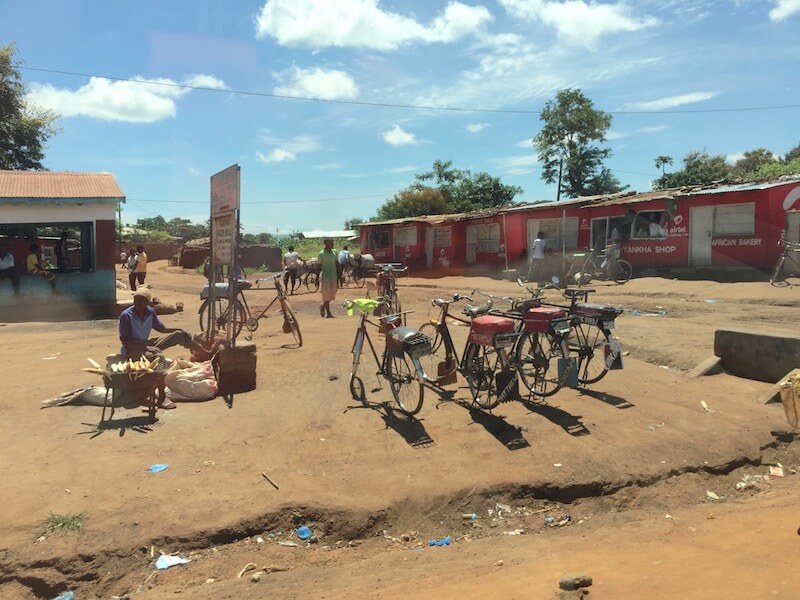
MALAWI PEOPLE ARE SOOO LAID BACK… AND THEN NOT
You’ve probably heard of the term ‘Africa time’ – rather than sticking to a firm schedule, things get done… when they get done. It’s a much less stressful approach to life though it can be disconcerting until you get used to it.
As I worked under a bougainvillea one morning, a group of gardeners were clearing some trees. They chopped a branch here, another there, climbed down to examine their handiwork… Other than the chopping of wood with a panga (the local machete), the only sound was the light winter breeze, the chirping of a few birds and the pitter-patter of tiny darting lizard feet.
Then suddenly a loudspeaker blared out of nowhere, a rowdy African song. Within minutes two other loudspeakers were in competition, rap on my left and on my right, something I thought I recognized from the 1980s. No one seemed to mind; everyone just began talking more loudly.
THIS IS WHAT A RURAL TAXI LOOKS LIKE
Rural Malawi ambles at such a slow pace that if you need a ride for a short distance, you may well have to hail a bicycle. Like motorcycles sitting at the top of small streets in Thailand’s cities, these wait at key spots, like road crossings and hotel entrances.
I’m not exactly a small person but they assured me – with hilarious gestures – that they often carried passengers far heavier than I!! And no, I didn’t try.

MALAWI’S CLEAR SKIES MAKE IT PERFECT FOR STARGAZING
Malawi has exceptional star gazing, for those of you who think a glittering firmament is magical (I do). All the prerequisites are here – clear skies, a rural setting and a lack of city lights. But the stars really come into their own along the shores of Lake Malawi, a large expanse of limpid darkness at night, broken only by the occasional light of a fishing boat.
MALAWI WEATHER – KEEP AN EYE OUT FOR THE RAINY SEASON
The Malawi climate, which is basically sub-tropical, was rainy when I visited and I worried I’d be stranded and unable to travel but no, the skies opened up for a few hours, no more. I was lucky because the rainy season can also bring with it seriously floods, which kill people.
When the rains are light, you tend to lose power here and there during the day. The lights go out – but come right back on. Even so, don’t even think of going out without a flashlight – it may be the most useful piece of equipment you carry.
Otherwise, Malawi weather is warm to hot, with the wet season between November and April, turning to lush green until the cooler period between June and August, which is the best time to visit Malawi and the height of the tourist season. By September, the heat sets in and continues until the rains start again.
On another note, in Malawi malaria is an issue so do take precautions before you visit.
MALAWI IS AN AGRICULTURAL COUNTRY AND ITS TOP EXPORTS ARE TOBACCO AND TEA
Looking out a car window, you’ll be amused by the number of goats scampering by the road, but you’ll also notice the green of tobacco plants: tobacco makes up more than half the country’s exports and is the country’s main cash crop. It’s a difficult life for the tobacco farmer. Not only is farming itself a health concern, but farmers are at the end of the receiving line when it comes to tobacco profits. There has been plenty of controversy around price-fixing by Big Tobacco and its life-cycle ownership of Malawi’s tobacco crop: large corporations provide the seeds and fertilizers, give the farmers loans, and contract with them to buy the crop at the end of the season. When you own the entire production process, you call the shots…
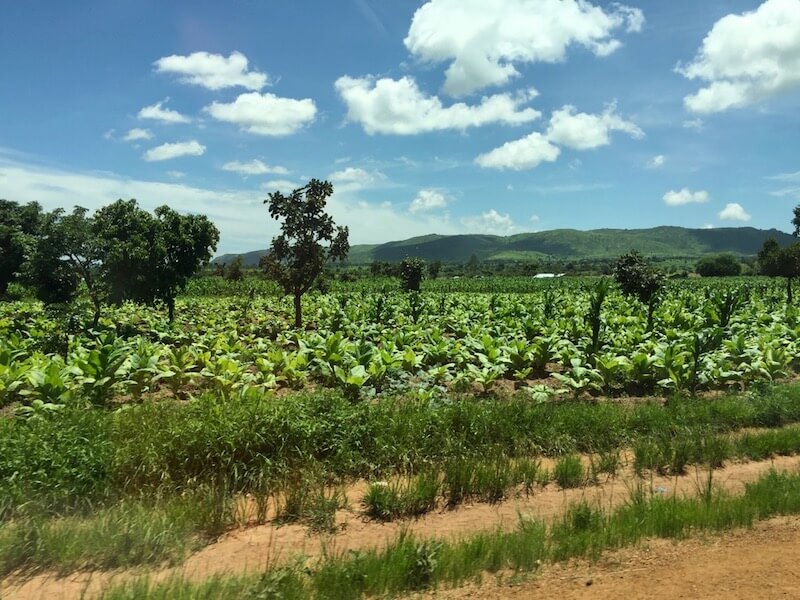
IT IS ALSO ONE OF THE POOREST COUNTRIES ON EARTH
This is a small country, as Africa goes, about the size of Bulgaria. But it is also one of the poorest countries on the continent (at times the poorest) and one that is heavily dependent on foreign aid.
Malawi also produces tea and coffee and plenty of other things but not enough to make it wealthy. Also typical of many poor countries is wood scarcity, with much of the forest being felled for firewood. Malawi is famous for its beautiful wood carvings – I remember wanting to buy a chair decades ago but it was so heavy the shipping would have cost more than the chair. In the end, I’m glad I didn’t buy it because I would have contributed to the disappearance of trees in Malawi. In the craft market, there were plenty of hardwood carvings but the sculptors told me they were the product of tree plantations.
The literacy rate in Malawi is below Africa’s average, with two-thirds of the population able to read and write. Still, education in Malawi is compulsory for the first eight years. The country has also suffered a high HIV infection rate but it is working to contain the epidemic, all of which hampers its development.
Despite ongoing poverty, Malawi has started turning things around and its economy has been growing steadily for several years. It is still poor, but its prospects are on the upswing.
DAVID LIVINGSTONE THE EXPLORER IS NO STRANGER TO MALAWI
Malawi’s capital is Lilongwe, but its other large city, Blantyre, was founded by Scottish settlers and named for Blantyre in Scotland, the birthplace of David Livingstone. The explorer remains fondly remembered here, in part for his devotion to Christianity (Many Malawians are devout Christians and social talk involving religion is common.) Livingstone also fought the slave trade, and mapped out Lake Malawi (then called Lake Nyasa, a name still used by neighboring Tanzania), which he called the “Lake of Stars” because of its shimmer (which some say is due to the lanterns used by the fishermen’s boats.
A random historical fact: Malawi was once a British colony called Nyasaland, the name it kept until independence in the mid-1960s.
A visit to lLvingstonia, Malawi
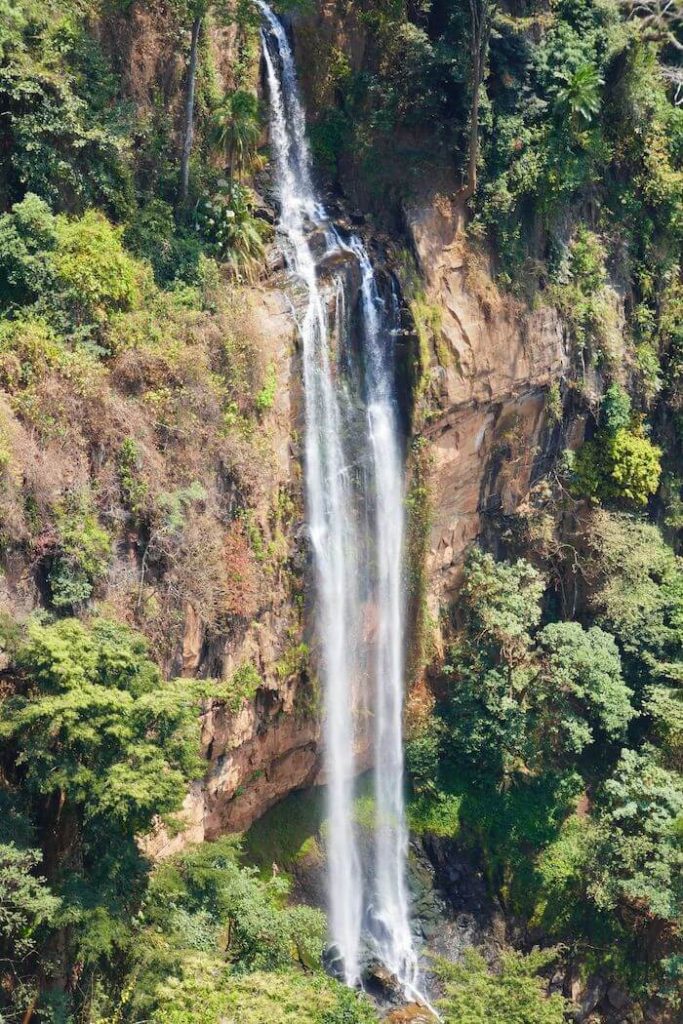
Livingstonia is a historic town founded by Scottish missionaries in the late 19th century and named after Dr. David Livingstone. The Scots established a hospital, church, primary and secondary schools, and even a university, all of which are still operating.
The town sits perched on top of the Rift Valley Escarpment, way up in Malawi’s northern highlands. The only way up here is on an extremely bumpy dirt road, either in a private car or in the back of one of the pickup trucks that serve as public transport. It’s a rough ride, but worth it for the views of Lake Malawi and the plains below.
Sights that you should visit in Livingstonia include the museum inside the stone house where founder Dr. Robert Laws once lived, and the church bell tower, which you can climb for sweeping views of the town and surrounding landscape. You can also walk to Manchewe Falls from here, which is Malawi’s highest waterfall at 125 meters.
Base yourself at the nearby Mushroom Farm, a community-based eco-lodge that offers a variety of affordable accommodation options and serves up the best food in Malawi. (Contributed by The Nomadic Vegan)
LAKE MALAWI IS GLORIOUS, BEAUTIFUL AND A LITTLE STRANGE
Lake Malawi is Africa’s third largest and the ninth largest in the world, a huge, empty expanse that borders with Mozambique and Tanzania. Elephants occasionally drop by for a drink, as do baboons and hippos. It also happens to be a UNESCO World Heritage Site and home to more fish species than any other lake in the world – approximately 800. Some 90% are cichlids, scurrying bright-colored fish only found in Africa. Cichlids from Lake Malawi can be tiny or huge and include chambo, a staple food in Malawi.
But that’s not why most people come to the lake: they come here to relax. Cape Maclear, Nkhata Bay, Senga Bay – all these are magical Lake Malawi resorts that entice people to visit, whether to lie on the beach, enjoy the scenery or go diving.
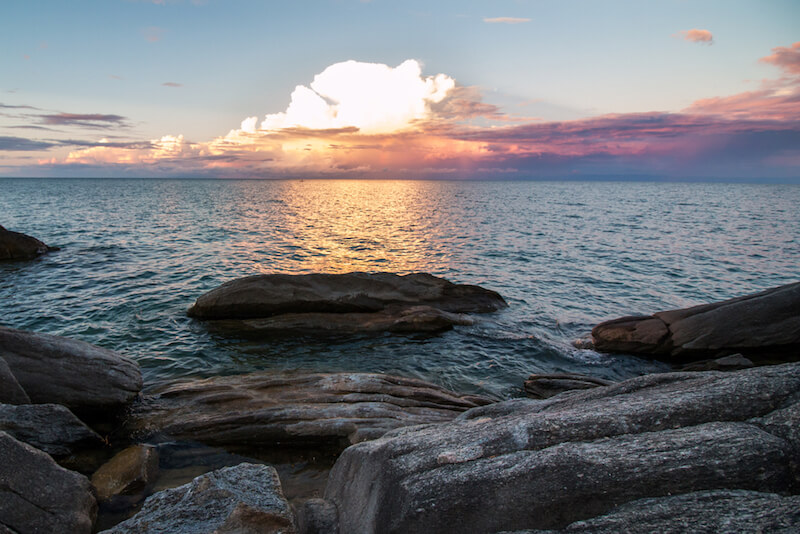
Lake Malawi accommodation
- Recommended top-rated hotel: Sunbird Livingstonia Beach, Senga Bay
- Medium-range pricing: Njaya Lodge, Nkhata Bay
- Great value budget accommodation: The Funky Cichlid, Cape Maclear
MALAWI IS LANDLOCKED – BUT 1/5 OF IT IS WATER
Malawi may be landlocked but Lake Malawi does provide it with a border – of sorts, because despite being drawn up well over a century ago, it is still somewhat disputed; some say the border runs along the Malawian coast, others say it runs smack down the middle of the lake. This controversy could have been blissfully ignored had it not been for the discovery of oil beneath the lake. For Malawians, the lake is omnipresent, as part of their culture, their fisheries and its sheer size and beauty.
NEARLY A QUARTER OF MALAWI’S LAND IS PROTECTED
For a small(ish) country, Malawi doesn’t do too badly on the conservation front: between 16%-23% of its land (depends on whom you read) is considered protected and includes nine national parks and reserves. That’s the good news. But it’s not all good. The latest assessments show deforestation is spreading and that such activities as logging (some of it illegal) and agriculture are encroaching on all national parks and destroying forests. Forests aren’t really being managed and that doesn’t help. That said, there is much poverty in Malawi so harvesting wood from the forest helps some people survive.
BUT NOT ITS WATERS, UNFORTUNATELY
Even if land is protected, there’s no guarantee the forest will survive but Lake Malawi is even worse off. More than a third of Malawians depend on the lake for their livelihoods and food, yet their very resources – the lake’s fish – are now threatened. Three of the four species of chambo are now considered critically endangered, and fisheries are threatened. Chambo has been a cheap and (for now) abundant source of food but at present rates of fishing, there soon won’t be any left.
A MALAWI SAFARI IS GOING TO BE THE NEXT BIG THING IN AFRICA TRAVEL
This isn’t Kenya or Tanzania or South Africa… no, Malawi is far more modest but it is changing fast, positioning itself to become the next African safari destination. There may be fewer animals in Malawi than you’ll find in neighboring safari countries, but you’ll also find fewer tourists.
Spot the Malawi wildlife at Nyika National Park
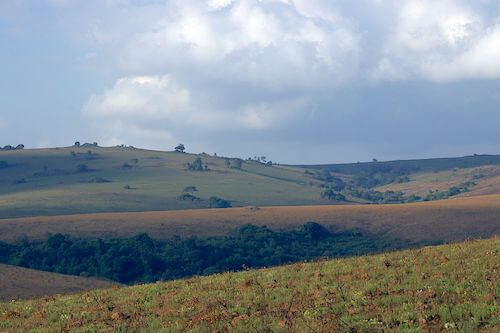
It’s not easy to get to Nyika National Park, far in the north of Malawi. It’ll take several hours of driving – half on unpaved roads – from Mzuzu. But your reward for the pounding your spine will take is a beautiful, gentle landscape, far from the tourist hordes.
Often compared to the rolling hills of the Highlands of Scotland, Nyika is up on a plateau, making for cool nights and comfortable days. It’s not a place to spot the Big Five, but you will see herds of zebras and a variety of other antelopes species. If you’re lucky, you might spot an elephant who wandered over the border from Zambia or, in the dusk or dawn hours, a leopard. You can take a walk here safely, or drive your own car around the park. It’s so off-the-beaten-track that you might not cross paths with a single other tourist all day. Chelinda Camp and Chelinda Lodge offer luxury accommodations inside the park, and it’s worth staying a few days to drink in the tranquility and the awe-inspiring night skies. (Contributed by Rachel’s Ruminations)
MALAWI IS THE SITE OF THE WORLD’S BIGGEST ELEPHANT TRANSLOCATION
Majete National Park was once home to teeming wildlife but by the 1990s, most wildlife had been poached and the park was nearly empty. It was then taken over by National Parks, an NGO that rehabilitates protected areas, who began reintroducing species. The plan worked so well that Majete began exporting animals to other Malawian parks.
In a move that brought hope to both parks and local communities, one of the largest elephant translocations ever – which took two years – successfully rehomed 520 elephants from Liwonde and Majete to Nkhotakota Wildlife Reserve, to help repopulate a park that was once home to the majority of Malawi’s elephants.
MALAWI DESERVES APPLAUSE FOR REHABILITATING ITS NATIONAL PARKS
Majete is just one example of park rehabilitation, where black rhinos, elephants, lions and plenty of other wildlife now thrive. Poaching has disappeared, tourism is on the rise and the income from tourism helps fund conservation efforts. What was once a wasteland has been restored to life – and the same future awaits Malawi’s other national parks. The government and private tour companies recognize the value of revitalizing protected areas, which benefits everyone.
MALAWI ANIMALS: spot the Big Five with a self-drive tour of Majete National Park
Majete National Park is Malawi’s only Big Five park, and until 2003 when African Parks took over its management, it was a heavily poached reserve and the animal population was almost decimated. Things are on the up though with a recent lion reintroduction program, the erection of a perimeter fence, an upgrade of accommodation and roads, and extensive conservation research.
As part of our self-drive Malawi itinerary, we allowed for an afternoon and morning game drive, camping the night in between. The area that you can drive around is relatively small (pick up a map from the entrance gate). On both game drives, we saw lots of hippos, crocodiles, elephants, impala, and warthogs.
The vegetation is rather thick, so drive slowly as you never know what’s around the next corner! We didn’t spot any lions, but we barely saw anyone else on our game drive and any encounter with wildlife felt intimate.
It’s a two-hour drive to the gates of Majete National Park from Blantyre. There’s a great campsite with level grassy pitches and a thatched dining area (although no power). Lodges are also available in the park if you need to sleep in more relative comfort. (Contributed by TraveLynn Family)
YOU DON’T HAVE TO GO ON SAFARI TO SEE WILDLIFE
It would be a shame to miss the chance of a safari in Malawi but if you simply can’t manage it and you’re in the capital, get yourself to the Lilongwe Wildlife Centre and spend an hour walking around the conservation trails to see the rescued wildlife. It’s not the same as a safari by a long shot but it’s a lovely experience and one definitely worth trying (the lunch at the on-site restaurant is good, too.) You can also follow the river trail out of the conservation area for several hours – but be sure to let the guards know where you’re going. Oh, and watch out for the occasional crocodile.
CHONGONI ROCK ART IS A WORLD HERITAGE SITE
Back in the late Stone Age and early Iron Age, the forested hills of central Malawi were already inhabited. We know this from a number of things, including the ancient rock paintings local hunter-gatherers left behind. The sites are still used for ceremonies and the Chongoni Rock Art area is a designated UNESCO World Heritage Site. It is made up of 127 separate sites scattered around the hills.
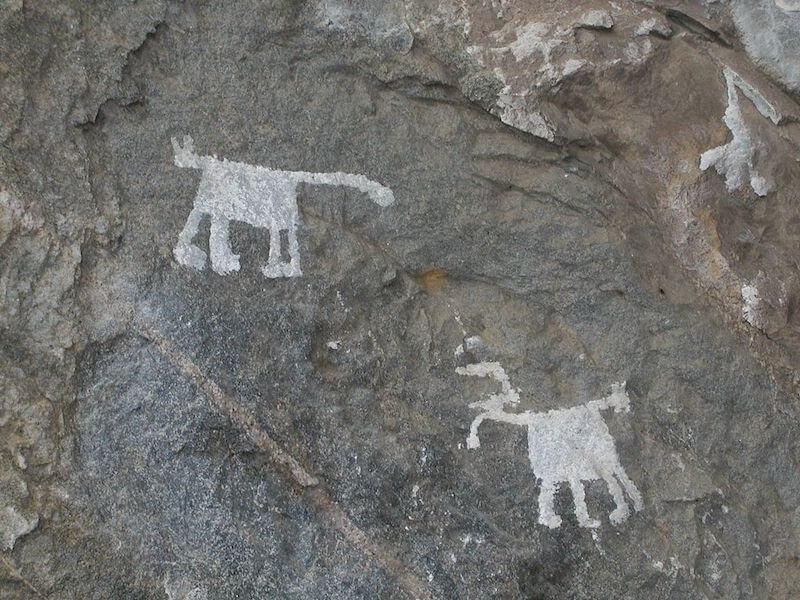
TRAVEL TO MALAWI ISN’T PARTICULARLY DIFFICULT
Air travel in Africa is changing (for the better) and a flight to Malawi is no longer the convoluted journey it once was.
Lilongwe Airport isn’t exactly cosmopolitan, but it has everything you need, including a small gift shop in the departure “lounge” for your coffee and tea purchases, and a café with food that is more acceptable than you’ll find at many larger airports.
Of course you can also take a bus to Malawi from neighboring countries, but high speed on poorly kept narrow roads make this option a lot more dangerous than flying. Hop on Air Malawi or Ethiopian Airlines instead.
LANGUAGE IN MALAWI ISN’T AN ISSUE
The two most common languages in Malawi are Chichewa, the national language, and English, which is the official language (remember those British colonial times?) This makes it easy for visitors to communicate and get around. Other languages include Yao, a Bantu language, Tumbuka (spoken mainly in the North), and some others spoken by a few hundred thousand people. (Curious about the sound of Chichewa? Here’s a Youtube lesson.)
YOU CAN GET A MALAWI VISA ON ARRIVAL
Knowing how difficult it is to get visas to certain African countries, Malawi is a dream. You land, stand in the first airport queue with your filled in visa form, then move to the second line to pay (when I visited it was US$75) and to get your passport stamped. That’s it, you’re in.
There are a number of Malawi visa free countries but most of us will need a visa on arrival.
HAVE I CONVINCED YOU?
Malawi may be small. It may be poor, and the infrastructure may leave something to be desired. But it is friendly, welcoming and – like that French patisserie – filled with such delight that deciding where to start is a challenge.
It’s the perfect country for a first visit to Africa. Or a second. Or a third.
MALAWI RESOURCES
- To buy a local SIM card, head to the Airtel shop in the airport arrival lobby (if it’s closed, go to the shop downtown)
- You’ll find the latest news of Malawi on Malawi24.com and the Nyasa Times
- For more things to do in Malawi, visit Malawi Tourism
- List of private hospitals in Malawi
- For a reliable driver, head for Travel Drivers
- Health insurance for Malawi
SHOP THIS POST ON AMAZON
PIN THESE PICTURES AND SAVE FOR LATER!

